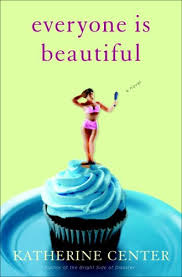I've been terrible about reviewing books lately. Over the last few months I have read a great deal of the latest fiction. These include:
The Local News by Miriam Gershow -
I want to dedicate a separate post to this later. But, in the meantime, I devoured this book in one day. I am not sure I'd say I love it but the story drew me in completely.
Reunion by Therese Fowler (and Souvenir) -

She has easily become one of my "authors." I liked Souvenir more than Reunion but I think she is a formidable talent. Reunion tells the story of an Oprah like celebrity who is haunted by the child she gave up for adoption at a young age. It is
also about the man she loved as a young person and his own complicated relationship with his young son, a war photojournalist. The characters are very life-like and interesting and the story is quite compelling.
Perfect Fifths by Megan McCafferty -
I am a huge McCafferty fan. In fact, my best friend and I went to a reading she did
for the last book in NYC, an we were so giddy afterwards. I can remember finding

Sloppy Firsts in my first BandN. It was in the fiction section and I started reading it while sitting on the floor. I have been a die-hard McCafferty fan from the first sentence. I can remember first reading about Jessica Darling when I was in high school and college. She is actually a year younger than me. And its been interesting to see how well McCafferty understands the life of a modern teen, college student and twenty-something. I even got my mother into the Jessica Darling books. She commented that they require so much outside knowledge of pop culture (I believe she called to ask what Dooce meant, as well as MILF). I think McCafferty understands the zeitgeist in a powerful way. And she synthesizes it all into such captivating stories. With Perfect Fifths, I was happy to have a culmination of the Marcus - Jessica love story. I am not sure it turned out as I imagined but I am not complaining. The structure of this book was also very interesting and different than the last four. But it didn't disappoint. Although I am sad that this may be the end of the written script for Jessica Darling.
Everyone is Beautiful by Katherine Center -

I can recall her first book vividly. There was a picture of a bowl on the cover I believe. It was about a woman whose husband walks out on her while she is pregnant. Anyway, I thoroughly enjoyed this book. Center is an amazing story-teller and she scripts the mundanity of motherhood and marriage in such nuanced and unique ways. She creates such vivid characters and such strong language. I am a big fan.
A Fortunate Age by Joanna Smith Rakoff-

I adored this book. I love her writing style. I love her topic. I love the setting. After finishing the book, I immediately wanted to re-read it. I just felt so
immersed in the story, so captivated by the language. I wanted to uncover the story, and yet I felt there was so much to be gained from reading through it again. I am not sure I even loved all of the characters as much as I loved the fact that the novel tells the story of NYC and young twenty-somethings in the 1990s. I have always wanted to write a book about a group of college friends and this tome (it is quite long) stands as a great example of how well it can be done. Rakoff jumps through time quite a bit and shifts from one character's perspective to another (with some getting more air time than others) but its easy to imagine that she scripted out various other stories that didn't make it into the final book. I feel she must have lived and breathed these characters, moving them from Oberlin to Brooklyn and Manhattan, through real life events. I can visualize some massive story boards in her apartment. It is obvious that Rakoff is a masterful storyteller.
I also read a story- collection and two non-fiction books: Love Stories in this Town by Amanda Eyre Ward (who I love!); and Apples and Oranges by Marie Brenner a non-fiction/memoir that I will be writing a review of later and The Girls of Ames by Jeffrey Zaslow. I have thoughts about that too and will try to write up a review.





